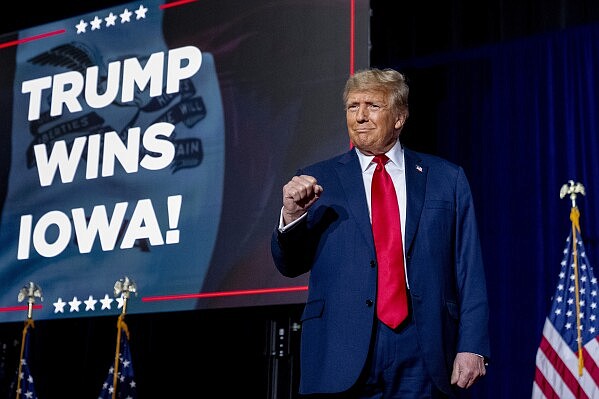Ever since Donald Trump won the presidency in 2016, many on the left have tried to find some way to explain his appeal.
The usual narrative is that Trump appeals to mostly white, mostly blue-collar, undereducated Americans who live outside major cities. That his followers are more likely to identify as evangelical Christians who see their traditional values as under assault from the left. And there are usually accusations of subtle or overt racism and homophobia.
A new book, "White Rural Rage" by Tom Schaller and Paul Waldman, is the latest attempt to explain the Trump Train, but it goes further than most. It casts Trump's most ardent supporters as the biggest "threat to the world's oldest constitutional democracy."
Schaller, appearing in February on MSNBC's "Morning Joe," called rural whites who back Trump "the most racist, xenophobic, anti-immigrant, anti-gay geo-demographic group in the country," adding that, "they're the most conspiracist group. QAnon support and subscribers, election denialism, COVID denialism instead of scientific skepticism, Obama birtherism."
If that wasn't enough, Schaller went on to say rural whites "don't believe in an independent press, free speech. They're most likely to say the president should be able to act unilaterally without any checks from Congress, or the courts or the bureaucracy."
And, he says, they are the most likely to justify using violence to further their political convictions.
The book has been selling like hotcakes And why not? It tells the progressive left they were right about Trump supporters in "flyover country" all along, but with a bonus -- the authors claim to have scientific data to back up their assertions.
Some of that data comes from the "Rural Voter: The Politics of Place and the Disuniting of America," by Nicholas Jacobs, a professor at Colby College in Maine. Jacobs surveyed thousands of rural voters and published his results in peer-reviewed studies.
But Jacobs, in an article published this week on Politico, says Schaller and Waldman are off base.
He says his research shows you can't just put rural white voters into one box to explain away Trump's appeal, no matter how convenient that would be.
The book "White Rural Rage," Jacobs says, is an "outpouring of frustration with rural America that might feel cathartic for liberals, but will only serve to further marginalize and demonize a segment of the American population that already feels forgotten and dismissed by the experts and elites."
The left "wants to simplify ruralness into something it's not. In the immediate aftermath of 2016, blaming rural people was a way to make sense of the surprise of Trump's election. This latest obsession with rage is the next chapter, a kind of collective cry of frustration from tired progressives: 'We give up!'" he adds.
In other words, many progressives on the left -- including the authors of "rural White Rage" -- believe they are right and can't fathom why their message doesn't resonate with Trump supporters. So it must be some failing on the part of those voters.
Jacobs, though, says it's not that simple and such assertions only serve to divide the nation further.
There are extremist on both the right and left. But in our view most Americans simply want what's best for their families and their country, even if they disagree on what should be done. Right and left, conservatives and liberals, Republicans and Democrats, elected official and ordinary Americans would do well to listen to them all and try to understand their concerns.
Because demonizing one side or the other may be easy, but will cost us all dearly down the road.

